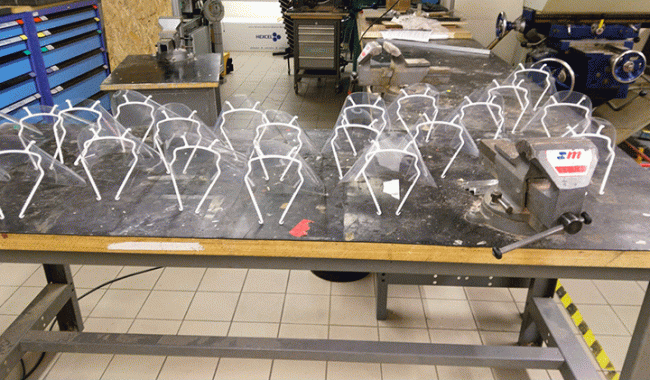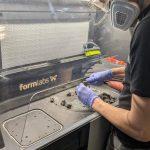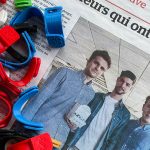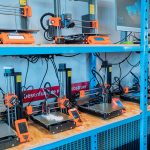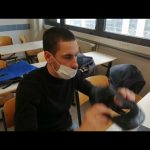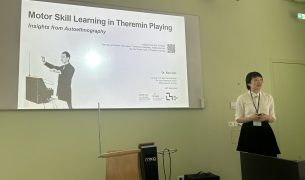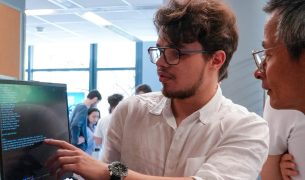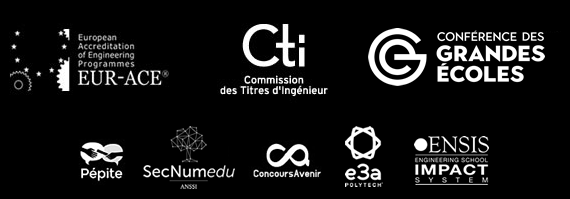The Pole Leonard de Vinci stands in solidarity with world in Covid-19 fight. Since Monday, March 30, a handful of students from the DeVinci FabLab student association, members of De Vinci Innovation Center community, and their teachers have been taken turns, two by two, to produce 3D-printed face shields.
The Pole Leonard de Vinci opened its doors since March 30 especially to a handful of students and teacher-researchers from the Pôle. Organised in teams of two people, the members of the DeVinci Fablab student association and the De Vinci Innovation Center (DVIC) work every day from 8 am to 9 pm to produce a significant quantity of protective visors.
While all the efforts of the French people are being focused at the moment on how to combat the pandemic, the seven 3D-printers and the laser cutting machine of the Pole’s Leonard de Vinci FabLab could not remain at a standstill for long. It was Henri Lieutaud, an associate professor at the Fintech Department, who mobilised the Pole in joining the widespread French fablabs and makers movement, which consists in massive production of 3D-printed medical equipment, to help with a lack of masks and ventilators.
Le Fablab de @ESILVparis sera ouvert la semaine prochaine pour que les membres de l'association puissent imprimer des visières. Nous donnerons la priorité au personnel médical, et au personnel amené à interagir avec le public régulièrement (caissiers, forces de l’ordre).
— Henri (@henrlihenrli) March 29, 2020
These reusable, disinfectable, 3D visors are requested by a large number of health establishments, pharmacies, fire brigades, long-term care centers, delivery companies. The resuscitation unit of the George Pompidou European Hospital is among the hospitals that use them. It has received around 50 visors.
“We have up to now produced 559 visors, thanks to our field volunteers Kevin, Henri, Zach and Brice and others from home like Corentin. Orders are pouring, we’ve already delivered 315 visors, we have 5 requests for 20-50 pieces already for tomorrow”. (Agathe Delas, president of De Vinci FabLab student association)
The “DVIC” Center mobilized for Covid-19 respirators and research
Other efforts emerge from behind the screens to take over the development of DIY respirators proposed by the hackers participating in the MIT COVID-19 Challenge 48 Hour Hackathon event.
The MIT Covid-19 virtual hackathon took place April 3-5 brought together 1500 participants organised in 240 multi-disciplinary teams aiming to generate innovative tech solutions to the challenges posed by the coronavirus crisis.
“Meanwhile, at the De Vinci Innovation Cener, other students reflect on the manufacturing of 3D-printed valves able to fit underwater masks or moulding techniques to produce large-scale protection equipment.” (Clément Duhart, Head of Devinci Innovation Center, professor of IA)
Collective intelligence and high-performance computer cluster mobilised at DVIC Center for the Folding@home project’s work
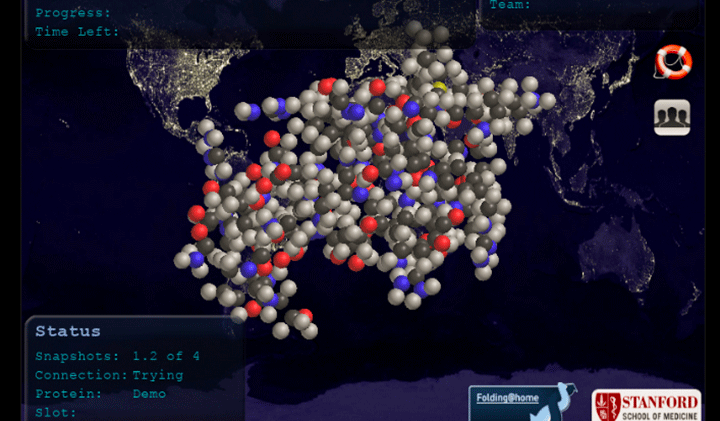
A screenshot of the Folding@Home’s dashboard
“Our AI aficionados paused their work, have paused their work to allow us to run Standford’s folding@home on our cluster computers 24/7. Over the last 8 days, more than 600 simulations have been carried out. This application makes it possible to transform any computer into a protein folding simulator in an effort to better understand the nature of the covid19 virus. All the data is centralized and enables the international community to set up a database available for use by researchers around the world. An inter-association competition at the Pole Leonard de Vinci was also launched to boost the whole community and reach the largest possible number of simulations.” (Clément Duhart, Head of Devinci Innovation Center, professor of IA)
Contacting the Pole’s de Vinci Fablab
While waiting for other solutions to arrive, the manufacturing of visors at the Pole’s de Vinci Fablab is not taking a break. Stocks are ready for new deliveries.
Any request from healthcare workers and community members in need of protective equipment is welcome. For all orders and/or proposals, the Fablab can be contacted by e-mail at the following address: equipement.fablab@gmail.com.









